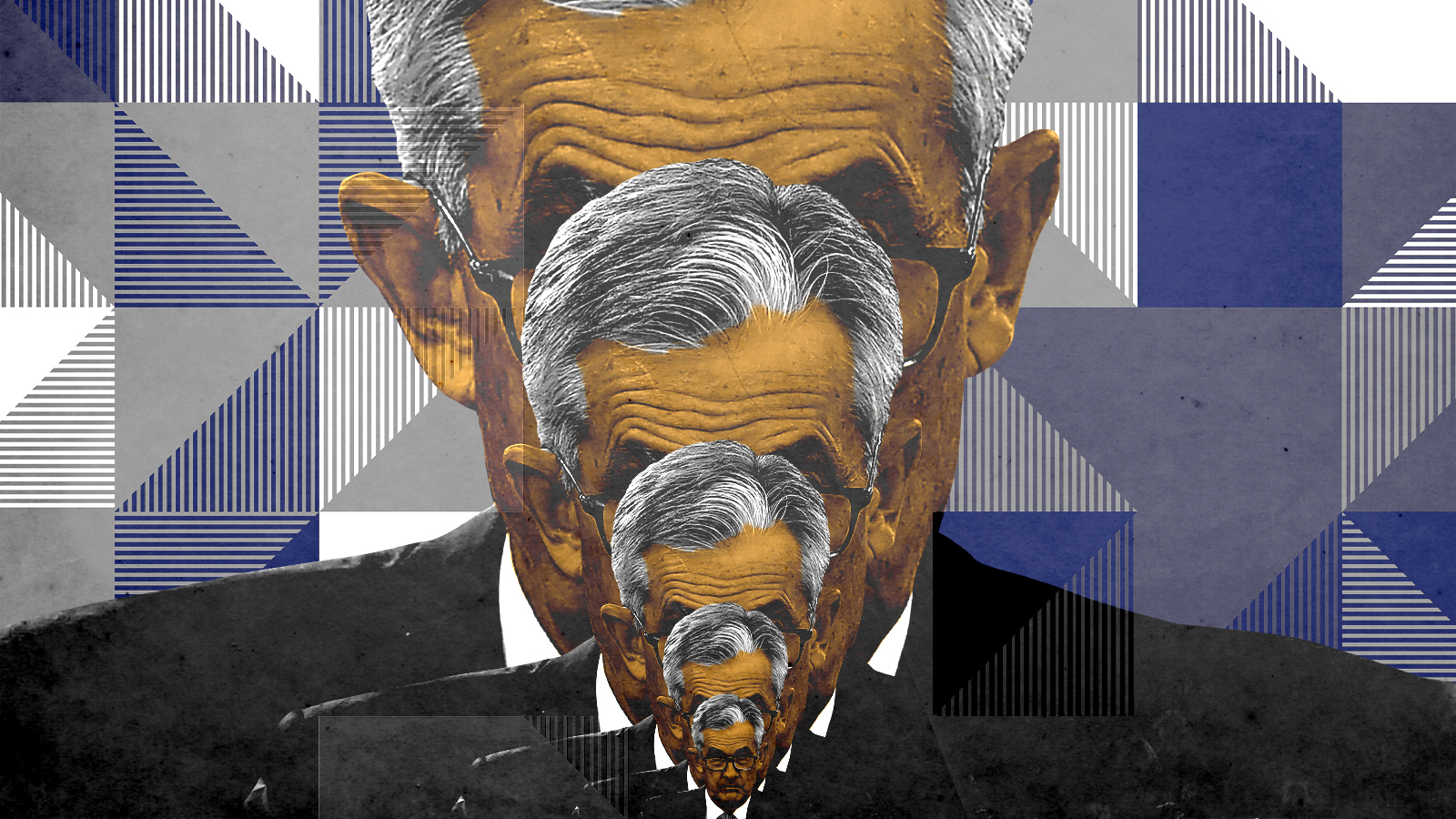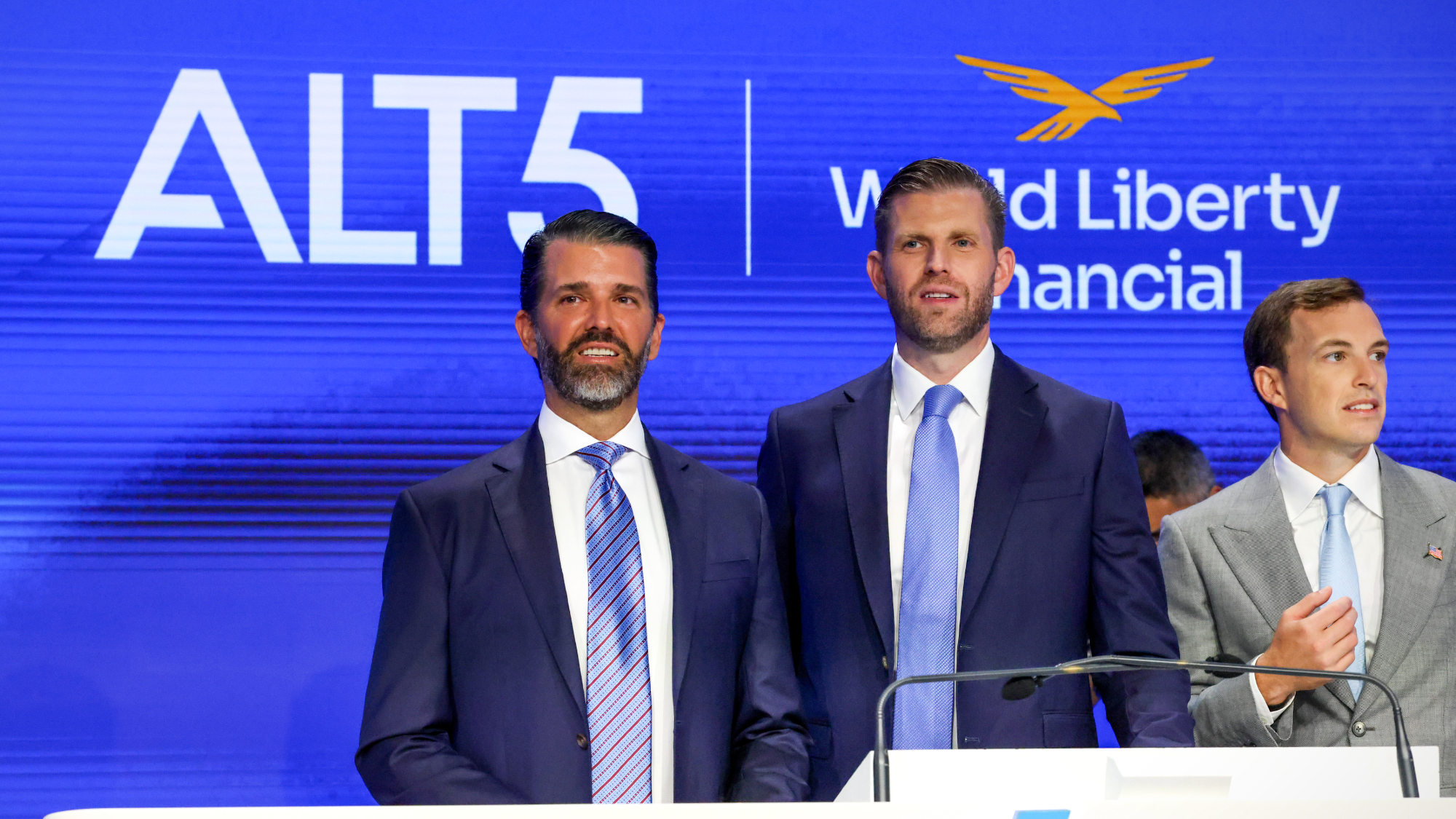Powell may not be the Fed pick progressives want, but he's the one they need
Why progressives should stomach Biden's Fed chair nominee


A free daily email with the biggest news stories of the day – and the best features from TheWeek.com
You are now subscribed
Your newsletter sign-up was successful
Jerome Powell, whom President Biden just nominated for a second four-year term as Federal Reserve chair, may not be the pick that progressive Democrats want. But he's probably the one they need. Powell is no old-school inflation hawk, he's not in a rush to raise interest rates as the 2022 midterms approach, and he's almost surely confirmable for a second term.
Still, it's understandable why some on the left might be unhappy — if for no other reason than that Powell's first term as Fed boss is owed to Donald Trump. And if you think anything associated with the 45th president needs to go, then no need for discussion about whether Powell merits another four years running America's central bank.
Similarly, progressives might find instinctively distasteful the notion of a Democratic president in the Age of Inequality picking a wealthy, white Republican man for the job, even if it is a tradition that the current Fed chair is reappointed during a president's first term. Even worse, from a lefty perspective, Powell is a former partner at the Carlyle Group, a giant private-equity fund. Wall Street wins again. Not to mention that Carlyle has been in the news lately — it's also the former home of Republican Glenn Youngkin, the upset winner of the Virginia governor's race earlier this month. More bad energy for Democrats.
The Week
Escape your echo chamber. Get the facts behind the news, plus analysis from multiple perspectives.

Sign up for The Week's Free Newsletters
From our morning news briefing to a weekly Good News Newsletter, get the best of The Week delivered directly to your inbox.
From our morning news briefing to a weekly Good News Newsletter, get the best of The Week delivered directly to your inbox.
But there's a more substantive progressive critique, one voiced by Sen. Elizabeth Warren (D-Mass.) among others. It goes something like this: The Federal Reserve has for too long been too focused on narrow macroeconomic objectives, namely full employment and stable inflation. And of the two, it has mistakenly overweighted price stability for decades. A 21st-century central bank, especially in the wake of the Global Financial Crisis, must pay more attention to a broader set of objects, including bank regulation, racial equity, and climate change. It also needs to clean up its act. Warren has called Powell a "failed leader" who has overseen a "culture of corruption" as exemplified by Fed officials trading stocks and making other investments while setting monetary policy.
In other words, if you're someone eager for a game-changing pick who's going to take the Fed in a radically different direction, Powell probably isn't your man. Nor is current Governor Lael Brainard, nominated for the vice-chair seat, likely your woman. As JPMorgan told clients Monday morning, "Today's news implies policy continuity, of course, and removes a source of uncertainty." Goldman Sachs put it this way: "Chair Powell and Governor Brainard have similar views on monetary policy."
Then again, the kind of Fed pick that might make MSNBC anchors and EconTwitter giddy almost surely couldn't get past "Manchinema" in the Senate. It's going to still be a while before full-throated proponents of novel economic approaches, like Modern Monetary Theory, are realistic choices for the top Fed job. It would take a pretty far-left American president to ignore the potential Wall Street reaction to a total out-of-the-box pick.
Then again, Powell has shown himself to be a Fed chair who doesn't see inflation as an everywhere and always-pressing problem, nor does he have some hair-trigger impulse to raise interest rates. Both Powell and Brainard believe the current inflation surge reflects transitory factors and not the start of a 1970s-style Great Inflation, as some Republicans in Congress are arguing. Congressional testimony earlier this year suggests just how un-traditional Powell is despite his background. Speaking before a House committee, he dismissed the near-term risk of inflation, expressed scant concern about the current level of the federal debt, and made clear the bank should consider the labor market participation of all groups, not just a broad, aggregate number.
A free daily email with the biggest news stories of the day – and the best features from TheWeek.com
As it is, the current economic consensus from places like Goldman Sachs and JPMorgan is that 2022 will be a year of faster economic growth, falling unemployment, and declining inflation. Basically, everything that should be up will be up, and everything that should be down will be down. That might not be enough to keep Democrats in charge of Congress, but it could prevent a total blowout. I would think that would be an important outcome for progressives. They should want a Fed chair who minimizes the risk of the central bank screwing that up. And they surely wouldn't want Biden to have picked a hawk eager to cool off the economy through a series of rate hikes.
But nor should they want a superdove who would send an economically dangerous message to consumers, businesses, and investors that the Fed doesn't take inflation seriously. In the end, it's changing inflation expectations that allow price hikes to start spiraling higher and higher. Such a scenario would not only be a recipe for a politically ruinous midterm election season for Democrats, but also raise the risk of a terrible 2024 and the potential reversal of the Biden agenda.
And if the Powell pick still makes progressives uneasy, they should remember that Trump spent two years attacking his own pick. So he's going that going for himself.
James Pethokoukis is the DeWitt Wallace Fellow at the American Enterprise Institute where he runs the AEIdeas blog. He has also written for The New York Times, National Review, Commentary, The Weekly Standard, and other places.
-
 Quiz of The Week: 14 – 20 February
Quiz of The Week: 14 – 20 FebruaryQuiz Have you been paying attention to The Week’s news?
-
 The Week Unwrapped: Do the Freemasons have too much sway in the police force?
The Week Unwrapped: Do the Freemasons have too much sway in the police force?Podcast Plus, what does the growing popularity of prediction markets mean for the future? And why are UK film and TV workers struggling?
-
 Properties of the week: pretty thatched cottages
Properties of the week: pretty thatched cottagesThe Week Recommends Featuring homes in West Sussex, Dorset and Suffolk
-
 Businesses are caught in the middle of ICE activities
Businesses are caught in the middle of ICE activitiesIn the Spotlight Many companies are being forced to choose a side in the ICE debate
-
 The high street: Britain’s next political battleground?
The high street: Britain’s next political battleground?In the Spotlight Mass closure of shops and influx of organised crime are fuelling voter anger, and offer an opening for Reform UK
-
 The billionaires’ wealth tax: a catastrophe for California?
The billionaires’ wealth tax: a catastrophe for California?Talking Point Peter Thiel and Larry Page preparing to change state residency
-
 Bari Weiss’ ‘60 Minutes’ scandal is about more than one report
Bari Weiss’ ‘60 Minutes’ scandal is about more than one reportIN THE SPOTLIGHT By blocking an approved segment on a controversial prison holding US deportees in El Salvador, the editor-in-chief of CBS News has become the main story
-
 Has Zohran Mamdani shown the Democrats how to win again?
Has Zohran Mamdani shown the Democrats how to win again?Today’s Big Question New York City mayoral election touted as victory for left-wing populists but moderate centrist wins elsewhere present more complex path for Democratic Party
-
 Millions turn out for anti-Trump ‘No Kings’ rallies
Millions turn out for anti-Trump ‘No Kings’ ralliesSpeed Read An estimated 7 million people participated, 2 million more than at the first ‘No Kings’ protest in June
-
 Trump crypto token launch earns family billions
Trump crypto token launch earns family billionsSpeed Read The World Liberty Financial token is now the Trump family's 'most valuable asset'
-
 Ghislaine Maxwell: angling for a Trump pardon
Ghislaine Maxwell: angling for a Trump pardonTalking Point Convicted sex trafficker's testimony could shed new light on president's links to Jeffrey Epstein
